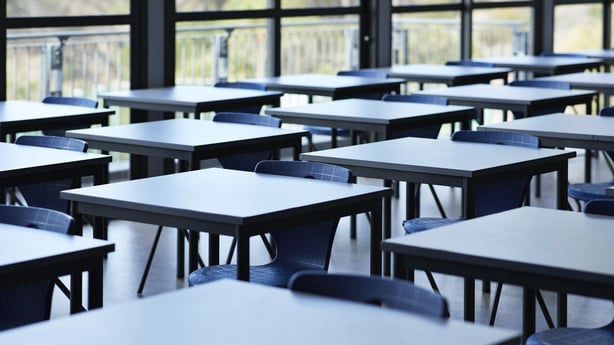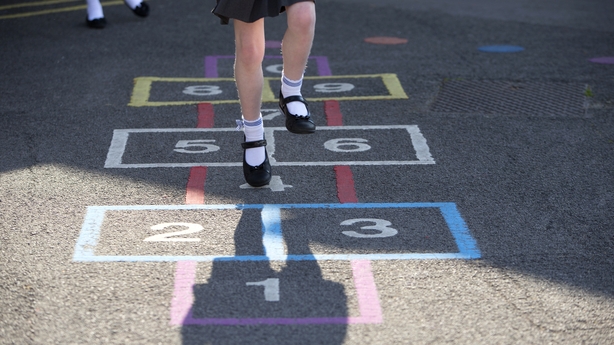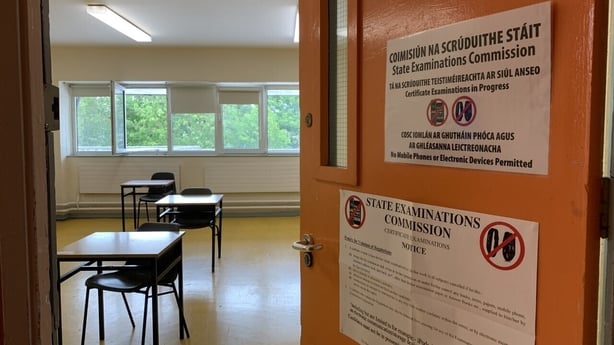School communities are longing for the day when they can finally put Covid behind them and bin things like masks in classrooms and limits on social interaction in schools.
But amid the raft of unwelcome pandemic restrictions are some innovations that have proven popular.
Education Correspondent Emma O Kelly asked students, parents, teachers and other school staff which changes they want kept.
Here is your top ten wishlist:
Remote parent teacher meetings
Among parents and teachers this is by far and away the most popular innovation under Covid, and so many want remote parent teacher meetings - whether online or over the phone - to continue.
For parents it means no more hours spent queuing in school corridors to get five minutes with your child's subject teachers, and no more having to arrange for childcare at home while you do that.
Both parents and teachers say remote meetings mean more time to actually talk, and teachers say they are also more likely to reach the kind of parent who might not turn up in person.
Base classrooms for students
This is an innovation loved by post-primary students.
Rather than them moving from room to room, as they used to in pre-Covid days, they have an assigned base classroom and the teacher comes to them.
Students say it makes the day less confusing and more relaxed. They also say it gives them more time.

Relaxed uniform policies
Did it really take a pandemic for some schools to allow girls to come to school wearing trousers rather than skirts? (Answer: yes)
Under Covid some schools - only some mind you - relaxed the rules and allowed female students to come to school wearing tracksuit bottoms.
A combination of cold weather and the Covid recommendation that students should wear PE clothing to school to avoid the use of communal changing rooms led to this welcome change.
Students also report that some schools relaxed rules around things like piercings or hair colour. They feel more free to be themselves as a result.
But all this begs the question: If a global pandemic only produced a small step in this direction, what will it take for wider change to happen?
Stay home when sick
Schools have always been breeding grounds for bugs of all kinds.
The single most important measure to try and stop the spread of Covid in schools was the public health injunction to parents; if your child is ill, do not send them in.
That’s not always easy for working parents, but school staff say that injunction should remain.
No more prizes for full attendance
For the same reason, the days of prizes for pupils who have full attendance should come to an end.
There is often good reason to miss a few days of school and full attendance at all cost is the last thing that schools should be promoting.
More outdoor breaks and staggered breaks
Children and school staff have loved the regular, timetabled movement breaks introduced in many schools under Covid.
Fresh air revitalises students, and staff too, and is good for learning.
Teachers want staggered yard breaks kept too. They say fewer children in cramped yards at any one time has led to fewer accidents and falls, and less bullying and exclusion too, because supervision is easier.

Schools are busy, noisy places but the reorganisation of breaks, and traffic on corridors under Covid has made them quieter and calmer.
Immediately staff noticed an unexpected bonus for many children, including those with sensory issues; a calmer school environment reduces stress and anxiety, and not just for children.
Better hygiene, and fresh air!
Handwashing, hand sanitising, HEPA filters, and proper ventilation; the new rigour around hygiene must now become a permanent feature of schools.
Teachers point out that schools managed it in previous decades, to combat TB, but somehow in more recent decades the system lost its way.
Respiratory hygiene is back with a vengeance, and has to be here to stay.
Online Professional Development
Continuous Professional Development for school staff is something most of us do not see, but maintaining and broadening staff skills is hugely important.
Another silver lining under Covid was the fact that CPD courses went online. It meant teachers and SNAs were not restricted to content provided locally.
Teachers say the choice and variety of courses available to them exploded.
Those with small children welcomed the fact that barriers to evening courses, such as childcare and a long commute, disappeared.
Down with the Leaving Certificate exams
Leaving Certificate reform was on the agenda before the pandemic, but in the slow quiet way of those "olden days", with consultation and research and reports going to the Minister for Education.
Covid blew all that out of the water.
Overnight the unthinkable happened, and teachers were assessing their own students for state certification purposes, and students were offered accredited grades.

Even when the pandemic is truly over - whenever that is - students do not seem at all keen to go back to the
Leaving Certificate ways of old, with that heavy focus on terminal exams.
The pressure is on, but addressing this issue promises to be thorny.
Listen to students
A new voice emerged in education during the pandemic - that of students.
It was no surprise really because that voice was already being heard on the streets, around climate change.
"Those in power need to continue to listen to us," says 6th year student Anjelica Foley, "but listen better, to the entire student body".
Schools have student councils now, but the extent to which they take into account the views of students varies hugely.
A student at Gorey Community School, Anjelica has campaigned on climate change and most recently for a hybrid offering for assessment for this year's Leaving Certificate.
Anjelica says: "Our generation is really engaged. We've shown that we have a voice and we want to use it."
Will that genie go back in the bottle? We will see.







